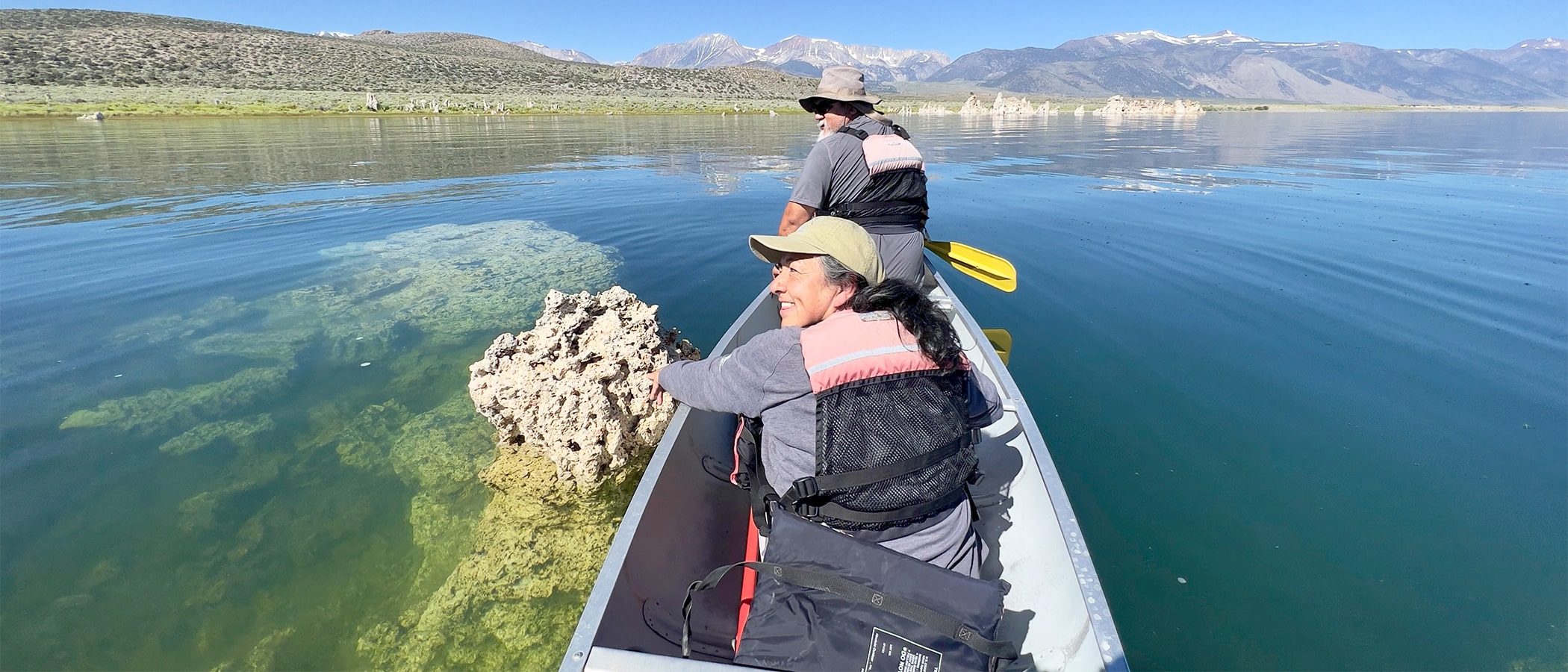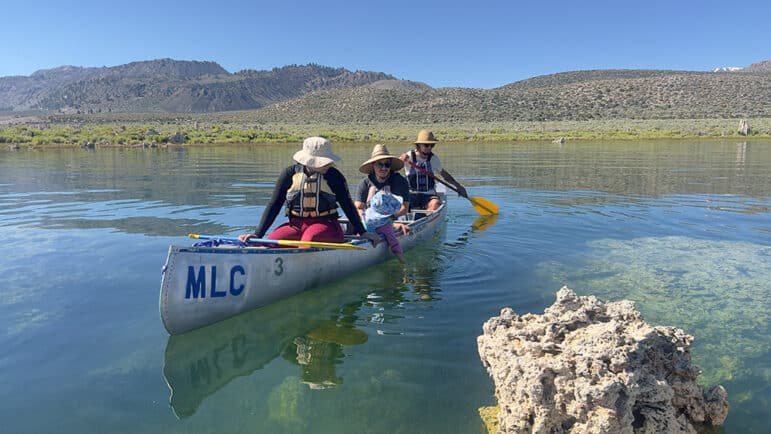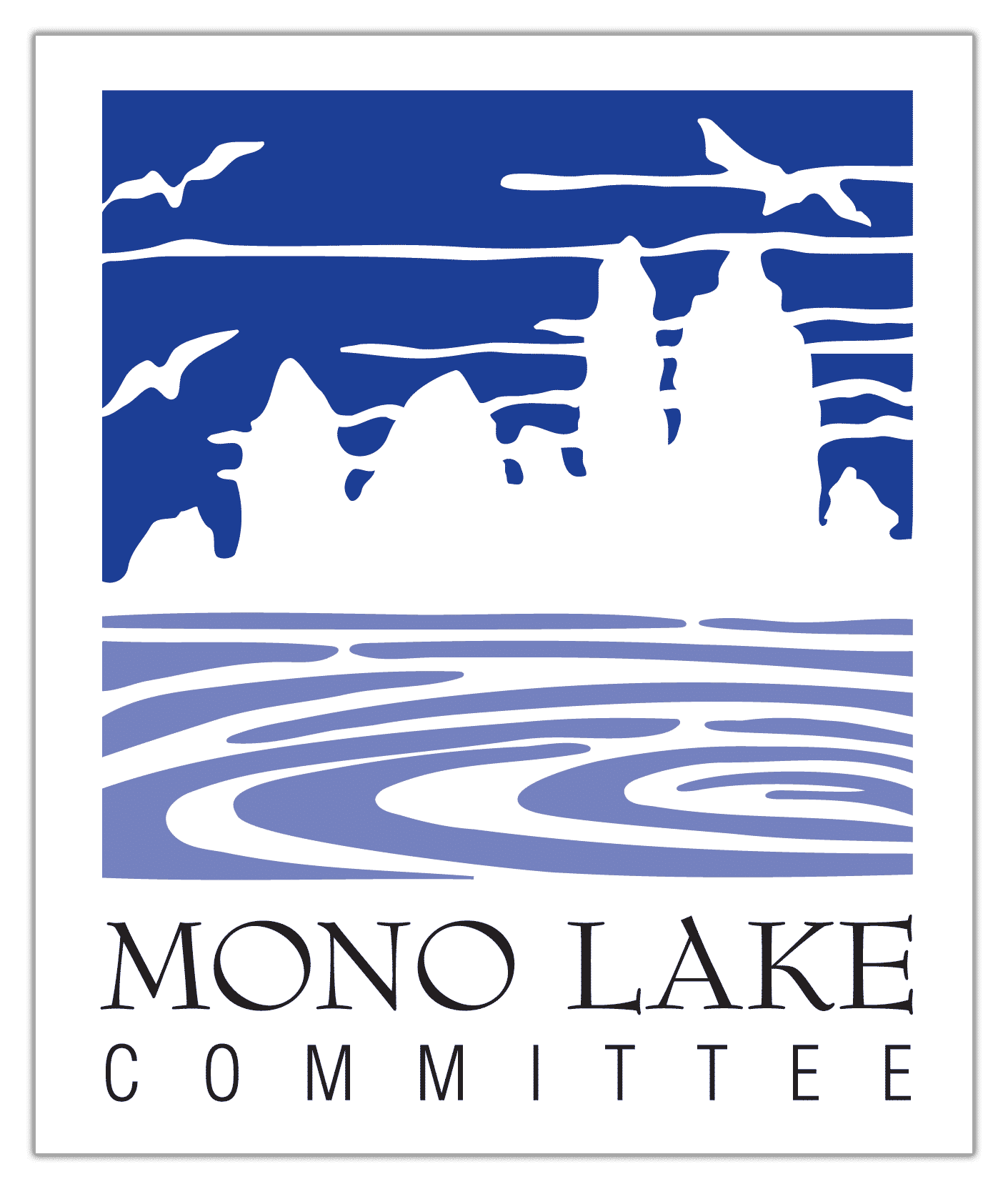
Thirty years ago Madres del Este de Los Angeles Santa Isabel (MELASI), an environmental and social justice group participating in a city-sponsored ultra-low-flush toilet distribution program, made the 350-mile journey north to join the Mono Lake Committee in seeing the benefit of their water conservation work and learn more about the source of their water at Mono Lake.
Now in its thirtieth year, the Mono Basin Outdoor Education Center (OEC) program is hosting more than 25 community and school groups this summer. Participants primarily from Los Angeles will visit Mono Lake to connect with the source of their water through multi-day trips full of watershed education through hands-on learning and stewardship activities.

True to its roots
In 1994, money from Assembly Bill 444 was being used to implement a voluntary water conservation program in Los Angeles to benefit the ecosystem of Mono Lake.
As part of the AB 444 implementation, community groups, in cooperation with the Los Angeles Department of Water & Power (DWP), installed residential water conservation equipment, primarily low-flush toilets, within the DWP service area. Community group members were trained in the water conservation equipment installation and given free toilets to distribute in their neighborhoods.
Part of a greater effort to show that the people of LA could easily conserve more water than was needed to save Mono Lake, the toilet retrofit program was both popular and successful. Together with MELASI, the Mono Lake Committee envisioned an idea to bridge the gap between Los Angeles youth and the origins of their water.
Together with Juana & Ricardo Gutierrez, co-founders of MELASI, a group of MELASI families traveled from LA for four days of camping and immersive watershed education at Mono Lake. Reflecting on the impact that this trip had on her group, Juana said in 1994, “In time these young people will become involved in the struggle to keep these places alive.”
Continuing the legacy
One of those young people was her grandson mark! Lopez, who has since become an activist and community leader with East Yard Communities for Environmental Justice. A staunch Mono Lake advocate, mark! continues to bring groups to Mono Lake each year, including his children, the fourth generation of the Gutierrez family to participate in OEC programs.
mark! writes, “The Mono Basin Outdoor Education Center has grown since the 90s. After enjoying the program as a youth participant for most of my life, I have transitioned to supporting organizing youth groups for over a decade. For us, unlike with other urban-to-outdoor type programs, visiting with Mono Lake isn’t about disconnecting from our communities. It is about understanding our own impact on Mono Lake, examining our responsibilities to Mono Lake and committing to fight for our communities, which includes fighting for Mono Lake. It is about a type of connecting and reconnecting that regenerates the type of community building our elders have taught us.”
The mission of the OEC program is to build understanding and appreciation for the Mono Basin-Los Angeles watershed through education programs and muscle-powered recreational activity; to demonstrate that balanced solutions are possible for meeting the water needs of people and the environment; and to kindle stewardship through service projects that restore and improve the quality of the Mono Basin watershed.
OEC staff tailor every trip to meet the students’ needs. By visiting Mono Lake, learning the history of the Los Angeles Aqueduct, and discussing the importance of equity and community around water, the participants can start to see Mono Lake as part of their home watershed.
Ron Ozuna, science teacher with LA Unified School District’s Theodore Roosevelt High School, and ten-time trip leader, wrote of the approach taken by Outdoor Education Center Manager Santiago Escruceria and the education staff:
“When you arrive at the OEC you have an introduction circle meeting on the living room floor. Santiago gives each student a fun nickname that he uses the entire trip and sets the tone for the next five days. From there, the activities start—a night hike, canoeing on Mono Lake, swimming, mountain climbing, eating together, and working on stewardship projects together. The whole time Santiago and his staff talk to the students, asking questions, making them think and come up with answers. They talk about school, the importance of education, nature, animals, plants, water, maps, volcanoes, and the planet. They listen to the students and make them feel important. Through these experiences, inevitably, the students begin to think about setting goals for school, education, and life.”
Generations of water leaders
The OEC programs have grown along with the success and evolution of water conservation programs throughout Los Angeles. In 1995, DWP leased the Mono Lake Committee a single-family home to use as the program’s base camp. The OEC has hosted more than 8,000 students from dozens of schools, environmental and social justice organizations, and community groups, primarily from Los Angeles.
After 30 years of OEC trips, the relationships between the Committee, students, and community groups have grown stronger. OEC students and leaders are advocating for Mono Lake—talking to city leadership and showing them that taking action to protect Mono Lake is also protecting their communities in LA. Others have migrated back to Lee Vining to work for the Committee and invest their energy at the northern end of the aqueduct. Currently, Information Center & Bookstore Assistant Dana Diaz and I are both OEC alumni working at the Committee.
When MELASI first ventured out to the wilds of the Mono Basin, it would have been hard for any of them to imagine what the program would become. When reflecting on this milestone for the OEC, Santiago’s theme for the students this year is simple: “Let’s reach 6,392 and build a sustainable future together.”
This post was also published as an article in the Summer 2024 Mono Lake Newsletter. Top photo by Santiago M. Escruceria.
